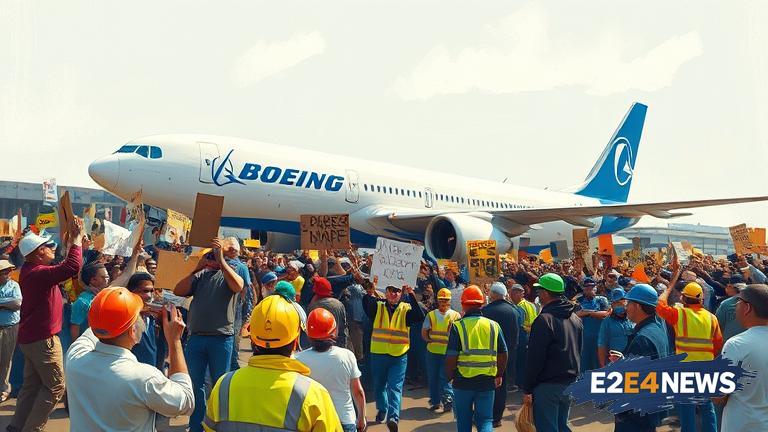In a significant development, thousands of Boeing workers, responsible for building fighter jets and weapons, have embarked on a strike to protest against the company’s current compensation and benefits package. The strike, which began recently, is expected to have far-reaching implications for the aerospace industry. The workers, who are members of the International Association of Machinists and Aerospace Workers (IAMAW), are seeking improved wages, benefits, and working conditions. According to the union, the current contract offered by Boeing is unacceptable and fails to address the concerns of the workers. The strike involves workers from various Boeing facilities across the United States, including those in Washington, California, and Missouri. The workers are demanding a significant increase in pay, improved healthcare benefits, and enhanced retirement packages. The union has stated that the strike will continue until Boeing agrees to meet the workers’ demands. Boeing, on the other hand, has expressed disappointment over the strike and has urged the union to return to the negotiating table. The company has stated that it is committed to finding a solution that benefits both the workers and the company. The strike has sparked concerns over the potential impact on the production of fighter jets and weapons, which are critical to national defense. The US government has expressed concern over the strike, citing the importance of Boeing’s products to national security. The strike has also raised questions over the future of the aerospace industry, with some experts predicting that the strike could lead to a shortage of skilled workers. The IAMAW has stated that the strike is a last resort and that the workers are willing to negotiate with Boeing to find a solution. The union has also received support from other labor unions and organizations, which have expressed solidarity with the striking workers. The strike has highlighted the ongoing tensions between labor unions and corporations in the United States, with many workers feeling that their rights and benefits are being eroded. The Boeing strike is the latest in a series of labor disputes that have affected major corporations in the United States. The strike has also sparked a debate over the role of labor unions in modern society, with some arguing that they are essential for protecting workers’ rights and others claiming that they are outdated. As the strike continues, it remains to be seen how Boeing and the IAMAW will resolve their differences. The outcome of the strike will have significant implications for the aerospace industry and the broader labor movement. In the meantime, the striking workers remain committed to their cause, determined to secure better pay and benefits for themselves and their families. The strike has also raised questions over the impact on the local economy, with many businesses that rely on Boeing’s operations likely to be affected. The US government has urged both parties to negotiate in good faith and find a solution that benefits everyone. The strike is a reminder that labor disputes can have far-reaching consequences and that finding a solution that works for all parties is essential. The Boeing strike is a significant development that will be closely watched by labor unions, corporations, and governments around the world.





